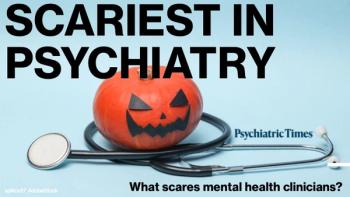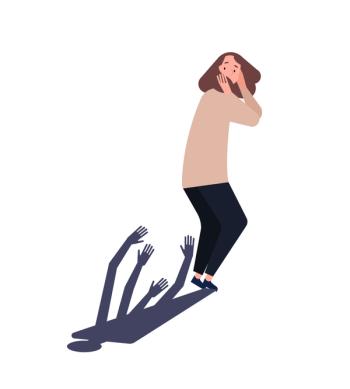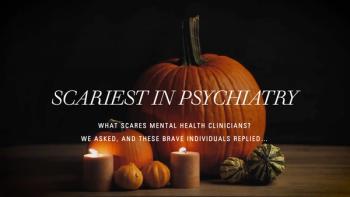
The Negative Impact of the Biodiversity Threat on Mental Health
What are ghosts and ghouls compared to the looming threat of the declining global biological state?
SCARIEST IN PSYCHIATRY
In this series, Scariest in Psychiatry, we asked clinicians about the scariest topic in mental health. What’s frightening, worrisome, or concerning in psychiatry? Here’s how they answered.
As Halloween approaches, ghosts and ghouls are not the looming concerns for many adults; there are much more scary things on the rise of which we should be aware. It comes as no surprise that all living things are connected, yet some unfortunately forget the symbiotic relationship between human’s biological equilibrium and its ties to all the elements of nature. While our emotions have an effect on how compassionate and passionate we are to make a difference in the trajectory or research and natural conservation, the opposite is true as well. The state of nature also has an impact on us.
As sentient beings, human emotions are influenced by the complexities found in our environments—what we see, feel, eat, touch, and even how we relate to each of these things in connection to other humans. Be it happy hormones from fresh oxygen filled air and vitamin D absorption, to aesthetic pleasure and preferences tied to cortical connections, or even the inadvertent sense of feeling peaceful and grounding when we are surrounded by the sacred geometry and vibrational current of all living things, studies have supported that humans feel better when nature is healthy, balanced, and beautiful.1,2 The threat on biodiversity disrupts the fabric of this.
While the pandemic and the rise in social injustice has been blamed for the rise in mental health concerns, many are not aware of the effect the global biological state has had on all organisms, including us. This crisis is happening underneath our very noses and is something that we should all take heed to and work to resolve. As a psychotherapist and self-proclaimed tree hugger, what keeps me shivering this Halloween is the fear that so many of us will miss opportunities to save ourselves and our children from the negative ramifications of an imbalanced natural structure. This is partly due to the media’s inclination to divert our attentions and focus us on feigned displays of importance.
For generations, our ancestors had to be attuned to the changes in nature for adaptability; this has built our connection with the natural environment.3 This further explains why many of us are being affected by the global shifts reflected in our local environments. Scientific evidence suggests changes in nature significantly influence mental and emotional well-being in multiple ways. The available evidence states that climate change has a significant, multifaceted, and correlational impact on mental health and emotional wellbeing.3 Climate change—paired with our poor sustainable practices such as deforestation, mis biome matched wildlife trade, overuse of chemicals, and tremendous carbon footprint stomping—has perpetuated the lack of genetic diversity on our planet. Our life-support system (nature) is in a scary state.
Whether or not we run into the flowers every chance we get or prefer just a few plants in our living area, we all ascribe to some form of symbiotic well-being with nature. Ralph Waldo Emerson, wrote “great nature in which we rest, as the earth lies in the soft arms of the atmosphere; that Unity, that Over-soul, within which every man’s particular being is contained and made one with all other; that common heart.”4
Some feel an emotional response because they are considering the possible effects on life in general, yet many are being affected without their knowledge just because we are connected to Mother Earth.5
This Halloween, as I hear about mercury in retrograde and increased incidents of droughts, wildfires, and extreme rainfall, suddenly cackling creatures and haunted houses do not seem as looming of a concern. I am haunted by the influx of people who will note uncharacteristic and unfavorable mental and emotional changes. Their mental stability will be tested as the earth sends its signals of distress in response to climate alterations and thus biodiversity. This Halloween, instead of thinking of transforming into a noticeable spooky icon, I hope my great fear will have a transformative effect on more of us to be mindful of warding against further damage and restoring nature for the sake of biodiversity. Our physical and mental health depend on it.
Dr Malone is a licensed professional counselor with
References
1. Cameron RWF, Brindley P, Mears M, et al.
2. Marselle MR. Theoretical foundations of biodiversity and mental well-being relationships. Biodiversity and Health in the Face of Climate Change. Springer Open; 2019.
3. Lawrance E, Thompson R, Fontana G, Jennings N. The impact of climate change on mental health and emotional wellbeing: current evidence and implications for policy and practice. Grantham Institute, Briefing paper 36. Accessed September 26, 2022.
4. Emerson RW. The over-soul. 1841. Accessed September 26, 2022.
5. Wang CX, Hilburn IA, Wu DA, et al. Transduction of the geomagnetic field as evidenced from alpha-band activity in the human brain. eNeuro. 2019;6(2).
Newsletter
Receive trusted psychiatric news, expert analysis, and clinical insights — subscribe today to support your practice and your patients.







